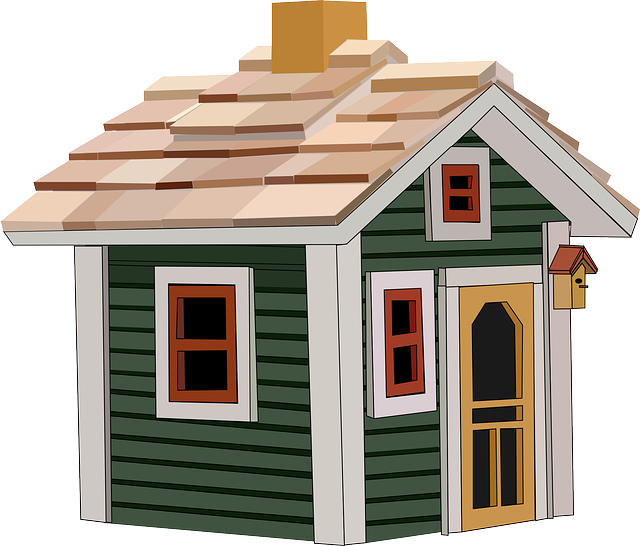Homeowners often encounter costly mistakes during DIY renovations or complex home improvement projects due to insufficient pre-project planning, budgeting, and ignoring professional advice. Common pitfalls include skipping essential permits (leading to legal issues), hiring unlicensed contractors (resulting in poor quality and higher costs), and measurement errors causing inefficient material use and waste. To avoid these renovation oversights, prioritize thorough planning, realistic budgeting, obtaining necessary permits, and seeking expert advice for intricate tasks, ensuring successful, budget-friendly home improvement endeavors.
“Many ambitious homeowners embark on home improvement projects with enthusiasm, only to face a labyrinth of pitfalls. From budget overruns that can quickly turn a simple upgrade into a financial enigma, to legal issues arising from skipped permits, these mistakes often leave folks caught in a web of unforeseen challenges. This article illuminates common renovation oversights, emphasizing the importance of planning and professional consultation. We’ll guide you through budgeting strategies, permit requirements, and the risks of hiring unlicensed contractors, ensuring your DIY endeavors are successful, not fraught with regret.”
Budget Overrun Mistakes: Unraveling the Financial Pitfalls
Many well-intentioned DIY enthusiasts and even seasoned homeowners often find themselves caught off guard by budget overruns during home improvement projects. One of the most common mistakes is underestimating the financial burden, which can quickly escalate due to unforeseen circumstances. Skipping essential permits or failing to secure licensed professionals can result in legal issues and costly repairs down the line.
Moreover, common oversights like measurement mistakes in DIY projects can lead to inefficient material purchases, waste, and additional expenses. Unlicensed contractors hired without proper vetting may charge higher rates or deliver subpar work, requiring costly corrections. To steer clear of these remodeling pitfalls, meticulous planning is crucial. Thorough research, detailed budgeting, and seeking professional advice when needed are essential steps to prevent budget overruns and ensure successful home improvement endeavors.
– Understanding common causes of budget blowouts
Many home improvement projects veer off course due to avoidable mistakes that lead to significant budget overruns. A common cause is insufficient planning and budgeting, often stemming from oversimplifying the project or underestimating material and labor costs. Ignoring professional advice and skipping essential permits can also lead to financial and legal headaches later on. DIY enthusiasts sometimes bite off more than they can chew, especially with complex tasks where measurement mistakes compound as the project progresses.
Another pitfall is engaging unlicensed or unqualified contractors, which can result in shoddy work and increased costs for repairs. Additionally, failing to account for unexpected challenges like hidden structural issues or material availability problems can dramatically escalate project expenses. Remodeling projects are notorious for running over budget due to these common oversights, highlighting the importance of thorough planning, realistic budgeting, and seeking expert advice when necessary.
– Strategies to prevent cost overruns during DIY projects
To avoid costly DIY renovation errors and home improvement mistakes, meticulous planning is crucial. Before starting any project, create a detailed budget outlining all anticipated expenses, including materials, labor, and unexpected costs. Researching average market rates for your region can help prevent budget overrun mistakes. Obtain necessary permits to comply with local regulations, ensuring you don’t fall into common renovation oversights that can lead to legal issues and expensive fines.
Accurate measurement is another critical aspect often overlooked in home improvement projects. Skipping measures or relying on rough estimates can result in incorrect material purchases and costly returns. Consider hiring a professional for specific tasks, especially if the project involves electrical or plumbing work. Using licensed contractors ensures quality workmanship and helps prevent hazards. By avoiding these planning errors, you’ll be better equipped to manage costs and minimize DIY renovation problems.
Skipping Permits: Legal Pitfalls in Home Improvements
Skipping permits is one of the most common and potentially costly home improvement mistakes. In many jurisdictions, renovations that exceed certain value thresholds require permits to ensure compliance with building codes and safety standards. Ignoring this crucial step can lead to legal issues, fines, and even the risk of having to tear out and redo work if inspections reveal non-compliance. DIY enthusiasts often underestimate the importance of permits, especially for smaller projects. However, these regulations are in place for a reason, ensuring structures are safe and up to standard.
Beyond legal consequences, skipping permits can also result in budget overruns. Unforeseen issues may arise during renovation, and without proper permits, obtaining necessary materials or labor later on could be more challenging and expensive. Additionally, hiring unlicensed contractors to complete tasks that require permits is another renovation pitfall. This not only avoids the legal obligations but also raises concerns about safety and quality of work. Measurement mistakes in DIY projects can also lead to incorrect material purchases, further adding to project costs.
When embarking on any home improvement project, avoiding common pitfalls like budget overruns and legal issues is essential. By understanding the potential risks, such as skipping necessary permits or making hasty measurements, homeowners can ensure a smoother process. Implementing strategies to manage costs and adhering to local regulations are key to preventing DIY renovation errors. Proper planning and attention to detail will help folks avoid costly mistakes, ensuring their home projects run smoothly and stay within budget.
